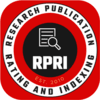Navigating The Work Force: The Intersection of Emotional Intelligence and Working Women
Keywords:
Emotional Intelligence, Working Women, Gender, Social Skill, Self-awarenessAbstract
Emotional intelligence is a tool used to understand and manage one’s emotions. The major five aspects involved in emotional intelligence are self-awareness, self-regulation, motivation, empathy and social skills. Unfortunately, in the real sense none has got the ability to fully understand and tackle human emotions. It is very evident that emotional intelligence is beneficial both in and out of the workplace. So, the present study has been taken up to explore the emotional intelligence of working women at RIE Mysuru and to compare their emotional intelligence with respect to different work positions that they occupy. Descriptive study design has been employed with an intact group of 53 working women from different positions they occupy (i.e., school teachers, college teachers and non-teaching staffs) at RIE Mysuru. Emotional Intelligence Questionnaire from Leadership Toolkit has been adopted and it consists of 50 items which intended to get the information about self-awareness, managing emotions, motivating oneself, empathy and social skills from the target groups. The data collected have been qualitatively analysed by using percentage analysis. The results revealed that working women at RIE Mysuru have got good emotional intelligence and they develop higher emotional intelligence when they go up the ladder of the work positions. This research provides new and original context-specific insights on emotional intelligence among women; these findings can be used as a basis for future research on emotional intelligence among women of different status while providing a knowledge base for contemporary emotional intelligence research.
References
Goleman, D. (1998). Working with emotional intelligence. New York: Bantam Books.
Boyatzis, R. E., D. Goleman, K. & Rhee. (2000). Clustering competence in emotional intelligence: insights form the Emotional Competence Inventory (ECI). In R. Bar-On and J. D. A. Parker (Eds), Handbook of Emotional Intelligence. San Francisco. Jossey Bars
Bhatti, A. G. (2013). An analysis of the general and gender difference regarding emotional intelligence among employees: evidence from government and nongovernment organizations of Hyderabad. KASBIT Business Journal, 6:106-113
Mayer, C-H., Oosthuizen, R.M., & Surtee, S. (2017). Emotional intelligence in South African women leaders in higher education. SA Journal of Industrial Psychology/SA Tydskrif vir Bedryfsielkunde, 43(0), a1405. https://doi.org/10.4102/ sajip.v43i0.1405
Meshkat, M., & Nejati, R. (2017). Does Emotional Intelligence Depend on Gender? A Study on Undergraduate English Majors of Three Iranian Universities. SAGE Open.
https://doi.org/10.1177/2158244017725796
Khanam, N., Sahu, T, Rao, E. V., Gaidhane, A. (2018). A study on various dimensions of emotional intelligence among doctors. International Journal Community Med Public Health, 5:390-4.
Downloads
Published
How to Cite
Issue
Section
License
Copyright (c) 2024 AKSHARASURYA

This work is licensed under a Creative Commons Attribution 4.0 International License.








